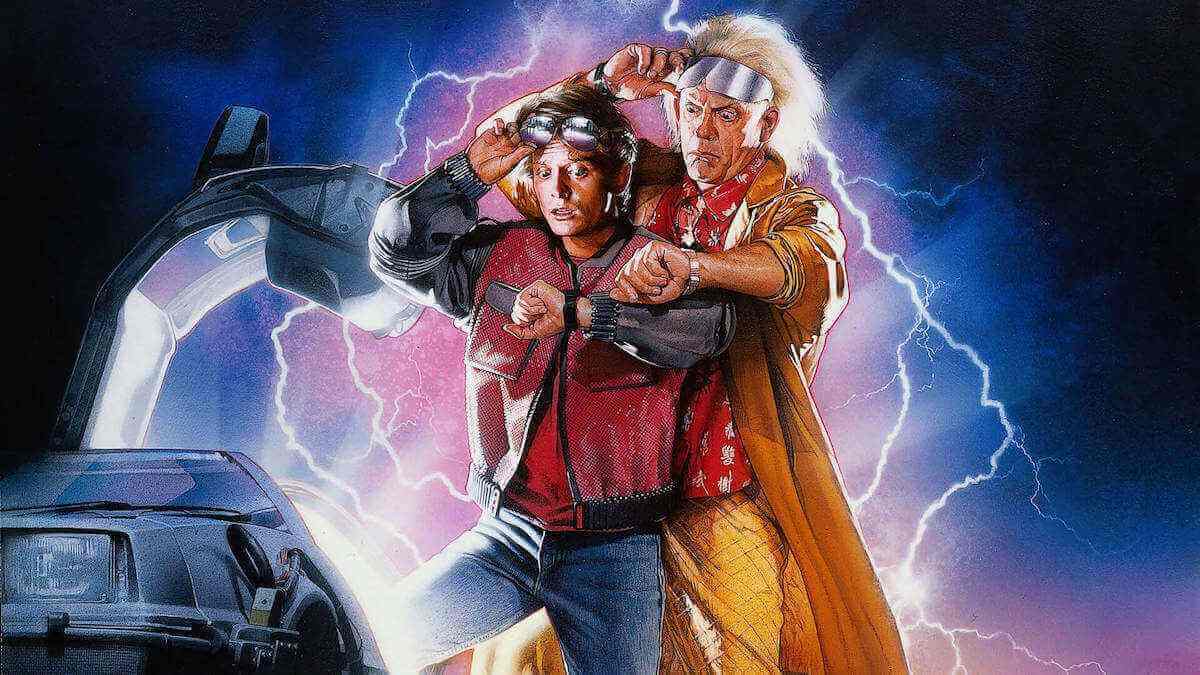What is a paradox? Definitions can often feel, well, paradoxical. Even though paradoxes have been part of human thinking for thousands of years, they are not always well understood. This seems particularly true of paradoxes in movies, which often leave viewers scratching their heads. Whether you want to get a grip on exactly what a paradox is, or write the next great brain-teasing movie paradox, this article will get you started.
Brain Teasers
What does paradox mean?
In addition to trying to wrap our brain around paradox meanings, we’ll investigate some famous paradoxes and paradoxical statements. We’ll also look at paradox in literature and time paradoxes in movies, including causal loops and the grandfather paradox.
But first, let's start with a paradox definition.
PARADOX DEFINITION
What is a paradox?
A paradox is a statement, proposition, or situation that seems illogical, absurd or self-contradictory, but which, upon further scrutiny, may be logical or true — or at least contain an element of truth. Paradoxes often express ironies and incongruities and attempt to reconcile seemingly opposing ideas. Paradoxes express something of the conflicting, often confounding, nature of human affairs, and even of meaning itself.
LIST OF PARADOXES:
- If I know one thing, it's that I know nothing.
- This is the beginning of the end.
- Deep down, you're really shallow.
- I'm a compulsive liar.
- Here are the rules: ignore all rules.
- Nobody goes to that restaurant; it's too crowded.
- Don't go near the water 'til you learn how to swim.
Discerning Differences
Oxymoron vs paradox
The difference between oxymoron and paradox is that a paradox is a statement, a series of statements, or a situation, while an oxymoron is simply two contradicting adjacent words such as:
- Bittersweet
- Deafening silence
- Jumbo shrimp
- Open secret
- Walking dead
Paradox Examples
Identifying paradoxes
Paradox quotes can be found throughout culture — in everyday speech; in philosophy textbooks; in film, literature, and drama; even in pop songs, which often contain paradoxical lyrics as a way of expressing conflicting and contradictory emotions:
- “You can check out any time you like / But you can never leave.”
- Hotel California, by The Eagles.
- “I was so much older then / I'm younger than that now.”
- My Back Pages, by Bob Dylan.
- “I don't really mind that it's starting to get to me.”
- Sam’s Town, by the Killers
- “Hello it's me, I'm not at home / If you'd like to reach me, leave me alone.”
- A Change Would Do You Good, by Sheryl Crow
One of the most simple and confounding paradox examples is something called "the liar's paradox." In the liar's paradox, we have a simple sentence: "This sentence is false."
It is among the most famous paradoxes, partially because it sums up the nature of paradoxes so concisely. If the statement is true, then it is by definition false, thereby making it true — and round and round it goes.
Paradox Literary Definition
What is a paradox in literature?
For thousands of years, writers have been using paradox. Examples can be found in epic Greek poems, including The Odyssey (written in the 8th century BC), in which Homer creates a paradox for the hero Odysseus to trick the cyclops who has captured Odysseus and his men.
While captured, Odysseus gets the cyclops drunk and tells him that his name is Nobody. Later, he attacks the cyclops, who screams to the neighbors that “Nobody is killing him.” Of course nobody comes to his aid because Nobody is hurting him — when, of course, somebody is hurting him, thus the paradox.
Tricking the Cyclops in The Odyssey
Shakespeare also expresses paradoxes within his work. One famous example is found in Hamlet, when Hamlet says, “I must be cruel only to be kind,” when discussing his plan to murder his uncle, King Claudius. Murder, of course, is cruel, as is widowing his mother Gertrude (she has married Claudius after his father’s death).
But Hamlet must do it in order to be kind to the ghost of his dead father, who Claudius has slain. He also believes he will be doing both his mother and the kingdom a kindness by dispatching a villainous usurper.
A more recent example is the “catch-22” from the novel of the same name. Catch-22 regales the attempts of Yossarian, an American bomber stationed in Italy during World War II, to get out of dangerous bombing missions by claiming to be crazy — because men diagnosed crazy will be excused from duty.
The paradox is that asking out of missions is seen as a sane act, because only a sane person can perceive the danger; a crazy person would never make the request. Thus, Yossarian is pronounced sane and made to continue to fly. One of the most famous paradox examples in literature, the term entered our shared lexicon as shorthand for a paradox.
“That’s some catch, that Catch-22.”
One final example of a paradox in literature can be found in Animal Farm by George Orwell, in which, “All animals are equal, but some are more equal than others” is a principle dictum of a society of animals Orwell uses as an allegory for human society.
The paradox is meant to illuminate the hypocrisy inherent in ruling systems that claim egalitarianism while erecting unjust hierarchies. Below it is articulated in the trailer for the 1954 animated film version.
Animal Farm • Paradox and Allegory
Both Heller and Orwell created paradoxes as a way to express the absurdity of war and oppression. Other important literary devices for conveying difficult ideas with which every storyteller should be familiar include allegory, oxymoron, and irony.
Related Posts
Paradox in Movies
Consider paradox in science fiction
Time travel is a favored premise of science fiction. The best sci-fi movies often use time travel as a way to dramatize temporal, or time, paradoxes and conjecture about what could happen if they played out. Many movies dramatize time paradoxes. Examples include:
- The Terminator
- Back to the Future
- Star Trek: First Contact
- 12 Monkeys
- Donnie Darko
- Primer
- Time Crimes
- Looper
- Interstellar
- Men in Black 3
- Predestination
- Avengers: Endgame
Movies typically present two kinds of time paradoxes according to physics: consistency — or grandfather — paradoxes; and causal loops. Let's review those paradox examples one at a time.
Paradox Meaning
The Grandfather Paradox
Imagine a character traveling back in time to kill her grandfather as a young woman. Why would she do this? As a screenwriter, the possibilities are endless. Maybe her grandfather turned out to be a genocidal dictator, or the inventor of glam rock. Who knows?
The point is, if the grandfather died, then the time traveler’s parents never existed — then neither would the time traveller herself. If she didn’t exist, then she wasn’t able to go back in time to begin with. And how is that possible if she killed her grandfather? This video provides one possible way to reconcile this paradox.
“Solution” to the Grandfather Paradox
Perhaps your character doesn’t want to kill her grandfather, but ends up changing the past in another way, resulting in a future in which she no longer exists. How would your character visit the past in the first place?
Back to the Future (1985) dramatizes this paradox when ‘80s kid Marty McFly goes back to the 1950s and “bumps into his parents,” altering the trajectory of their relationship, and imperiling Marty, who now may never be born. In this scene, Marty literally begins to disappear as it seems his parents will never become a couple.
Marty Fades Away
Another grandfather paradox occurs in The Terminator (1984), when John Connor sends Kyle Reese to the past to save his mother, Sarah, from an artificial intelligence network that is trying to wipe out John by killing Sarah before he can even come into existence.
Sarah learns about the future
The famous paradox in The Terminator is that Kyle becomes John’s father, then dies in the past. But if he dies in the past, how is he sent back from the future to rescue Sarah and become John’s father?
Ask even a casual film fan what is a paradox in a movie and they’ll likely name this one first. Let's move onto what's known as a causal loop.
Predestination Paradox
Causal Loop explained
The other primary time-travel paradox in science fiction is referred to as a causal loop — so named because the time travel journey on which the traveller embarks is a circular one. He keeps making the same trip again and again despite attempts to change the past: a future event causes a past event, which causes a future event, and so on.
A causal loop is sometimes referred to as a predestination paradox, meaning that the future is predestined to stay the same at every point along the loop. No matter how hard the traveller tries to change things, fate won’t allow it.
An example of a predestination paradox can be found, not surprisingly, in Predestination (2014), in which a time traveller is sent to the past by a government agency to stop a mass murderer.
During the film, the time traveller discovers that he is on a causal loop, and that on different points on the loop he is both his own mother and father, as well as the mass murderer he’s trying to stop.
Predestination • Can we change the future?
Once he realizes this, he tries to break the loop and stop himself, only to find that events unfold with the same results — they are predestined. This video breaks down the timeline of Predestination to show how the screenplay dramatizes the paradox.
Predestination • Illustrated Timeline Explanation
The video explains the causal loop in the movie very clearly; however, a viewer watching the movie for the first time will likely find it much less clear. This is a good lesson for screenwriters: paradoxes can be confusing and need to be carefully set-up and explained.
UP NEXT
Exploring irony in storytelling
Stories dramatizing predestination paradoxes are typically trying to convey irony — perhaps the idea that the more things change, the more they stay the same. Irony is one of the most important of all storytelling elements, and something every screenwriter should be in command of. Let’s begin an exploration of kinds of irony and how they are used.

